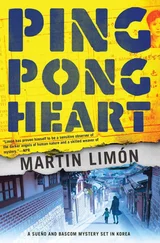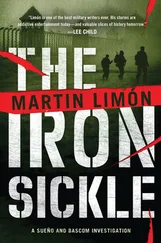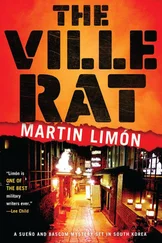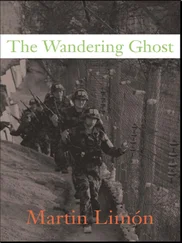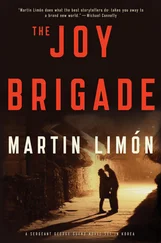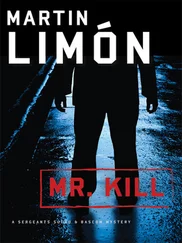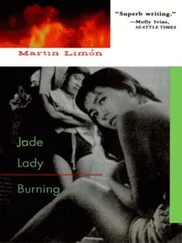Martin Limon - The Door to Bitterness
Здесь есть возможность читать онлайн «Martin Limon - The Door to Bitterness» весь текст электронной книги совершенно бесплатно (целиком полную версию без сокращений). В некоторых случаях можно слушать аудио, скачать через торрент в формате fb2 и присутствует краткое содержание. Жанр: Полицейский детектив, на английском языке. Описание произведения, (предисловие) а так же отзывы посетителей доступны на портале библиотеки ЛибКат.
- Название:The Door to Bitterness
- Автор:
- Жанр:
- Год:неизвестен
- ISBN:нет данных
- Рейтинг книги:4 / 5. Голосов: 1
-
Избранное:Добавить в избранное
- Отзывы:
-
Ваша оценка:
- 80
- 1
- 2
- 3
- 4
- 5
The Door to Bitterness: краткое содержание, описание и аннотация
Предлагаем к чтению аннотацию, описание, краткое содержание или предисловие (зависит от того, что написал сам автор книги «The Door to Bitterness»). Если вы не нашли необходимую информацию о книге — напишите в комментариях, мы постараемся отыскать её.
The Door to Bitterness — читать онлайн бесплатно полную книгу (весь текст) целиком
Ниже представлен текст книги, разбитый по страницам. Система сохранения места последней прочитанной страницы, позволяет с удобством читать онлайн бесплатно книгу «The Door to Bitterness», без необходимости каждый раз заново искать на чём Вы остановились. Поставьте закладку, и сможете в любой момент перейти на страницу, на которой закончили чтение.
Интервал:
Закладка:
“Maybe. Maybe not. Still, it would’ve been risky to flee Inchon right away.”
Ernie was right about that. There was only one superhighway running from here to Seoul, another old meandering country road running roughly parallel, and a third thoroughfare heading south along the coast. Nothing going north or east to the Yellow Sea. KNP traffic units routinely patrolled those three roads, and as soon as they were notified by radio of the bank robbery, they’d have set up roadblocks, checking everyone out, searching bags. They hadn’t found any wads of cash or suspicious Miguks trying to leave town. If the thieves had tried to escape by sea, they’d be even easier to catch. Korean fishermen talk, and the Korean Navy had been alerted. It was hard to believe that two Americans wouldn’t soon have come to the attention of the inquisitive Korean National Police. Fleeing via aircraft was out of the question. Kimpo International, the nearest airport, is located on the road to Seoul, beyond the KNP roadblocks, and all other aircraft was strictly controlled by the Korean military.
“Maybe they beat the roadblocks,” Ernie said. “If so, they’re gone and there’s nothing we can do about it now. But I doubt they would’ve been able to move that fast. If they didn’t beat the roadblocks, if they’re still here in Inchon, where would they go?”
“A GI compound?”
“Maybe. That little transportation unit sits right below the Olympos. Unlikely that even a couple of GIs would be stupid enough to conduct such a daring robbery in their own backyard, but stranger things have happened. We’ll check it out.”
“And the Seaman’s Club,” I said.
“Yeah. Merchant marines. Who knows?”
Ernie started up the jeep but I motioned for him to stop.
“What?” he said impatiently.
“I just thought of something. Wait here.”
Reluctantly, Ernie turned off the jeep’s engine, while I climbed out and ran back into the police headquarters building. A half-hour later, when I returned, the sky above the Yellow Sea had turned a dark blue. Ernie was still sitting behind the steering wheel, sleeping, his fingers laced across his stomach. A buzzing yellow street lamp shone down on him. I shook him awake.
He sat up and rubbed his eyes. “What you got?” he asked groggily.
I unrolled a police sketch and held it up to the light of the street lamp.
Ernie whistled. “Who’s that?”
“The smiling woman,” I said.
He whistled again. “Now I understand why you followed her into a dark alley.”
I studied the sketch. The woman was gorgeous. The Korean artist, a talented young man, had captured completely the description I’d given him. He even had her smiling. What he couldn’t catch, no matter how many times I tried to explain, was the madness in her eyes. In the sketch she looked beautiful. Radiant. In real life, she’d looked obsessed. Desperate. Crazed.
I rolled the sketch up, walked around and jumped into the front seat next to Ernie. He started the jeep’s engine and cruised in first gear down the steep hills. The air began to reek of fish and garlic and the tang of salt-splashed sea.
I hugged the sketch closer, wondering about the smiling woman. Wondering if I’d ever see her again.
First we stopped at the tiny military compound.
The compound was nestled behind the United Seaman’s Service Club in the shadow of the huge Olympos Hotel.
It was after regular duty hours for GIs now, and the dark compound seemed deserted. The arch over the main gate bore a replica of the red-and-white 8th U.S. Army cloverleaf patch and said 71st Transportation Company. The entire complex consisted of six Quonset huts, which included the sleeping quarters for the fifteen GIs stationed there.
In the Orderly Room, an irritable corporal assigned the night duty as Charge of Quarters managed to locate an even more irritable First Sergeant. After we identified ourselves and told him the nature of our business, he pointed to a board behind his desk marked “Personnel Roster.” There were black-and-white photos of every GI in the unit, arranged in a pyramid from the Captain, who was the Commanding Officer, to the First Sergeant himself, down to the lowliest private. No one was absent without leave, the First Sergeant told us, and everyone had been at their assigned duty stations at eleven hundred hours this morning. We showed him and the Charge of Quarters the sketches of the two thieves the KNPs had provided. Both claimed to have never seen those men before.
On our own, we compared the sketches to the photos on the personnel roster. No obvious matches. But the sketches were nondescript. Almost blurry. As would’ve been the recollections of a handful of casino employees who probably spent most of their time during the robbery staring at the barrels of the pistols pointed at them. The one sketch was of a generic Caucasian. Pug nose, square face, short hair, eyes unseen behind opaque shades. The other was even less specific. Dark man, dark hair, dark shades. He could be a curly-haired Korean, a Hispanic, a swarthy Caucasian, or even a light-skinned black.
A group of American witnesses might’ve been able to figure out the man’s race. But to Koreans, all GIs are part of one race: foreigners. It was becoming apparent to me that these sketches were not going to be much help.
The Charge of Quarters even decided to be a smartass about the whole thing.
“These guys look more like you two than anybody else,” he said.
Ernie and I ignored him. I unrolled the sketch of the smiling woman. Both men leaned forward, mouths open, and for a moment I thought they might drool. When the CQ reached for the sketch, I slapped his hand away.
“Hey!” he said.
“Have you seen her or not?”
They both shook their heads and the CQ said, “I wish I had.”
I thanked the First Sergeant for his cooperation. In response, he grunted.
The United Seaman’s Service Club was our next stop. All the employees-the cooks, the waitresses, the bartenders-were Koreans, except for the American manager. He was a chubby, bald, middle-aged ex-merchant marine originally from New Jersey, and he definitely did not match the two young faces in the sketches. He claimed the KNPs had already been by and questioned everyone in the club about the robbery.
4
Still, at that time, they didn’t have the sketches. We showed the charcoal-limned faces to all the employees, and they all claimed they had never seen them before. The only ships in port currently were one Panamanian vessel manned by Filipinos, one Greek ship manned by Greeks, and a Japanese ship manned by Japanese. None of the crews frequented the United Seaman’s Service Club. The Filipinos and the Greeks because they were poor. The Japanese because they didn’t appreciate the food.
“Tonight’s special is prime rib,” the manager told us.
Ernie and I declined. No time for chow.
Then I unrolled the sketch of the smiling woman and showed it around. The Korean men seemed mildly interested, but the women uniformly crinkled their noses. I asked what was wrong. Most of the women wouldn’t answer, but one rotund waitress waggled her finger at the sketch and said, “She not Korean.”
“What is she?” I asked.
“Maybe…” She started to say something but then thought better of it and shook her head. “I don’t know.”
Everyone denied having seen the smiling woman.
In the cocktail lounge, an elderly Caucasian man lay with his face down on a table near the juke box. The man was red-nosed, unshaven, and snoring.
The Korean bartender stood at attention behind the bar.
“How long has this guy been here?” I asked him.
“We open, most tick he come.”
“Most tick” is a GI corruption of the Japanese word mosukoshi, which means “in a little while” or “soon” combined with an English expression of time, as in “ticktock.” Therefore, “most tick.”
Читать дальшеИнтервал:
Закладка:
Похожие книги на «The Door to Bitterness»
Представляем Вашему вниманию похожие книги на «The Door to Bitterness» списком для выбора. Мы отобрали схожую по названию и смыслу литературу в надежде предоставить читателям больше вариантов отыскать новые, интересные, ещё непрочитанные произведения.
Обсуждение, отзывы о книге «The Door to Bitterness» и просто собственные мнения читателей. Оставьте ваши комментарии, напишите, что Вы думаете о произведении, его смысле или главных героях. Укажите что конкретно понравилось, а что нет, и почему Вы так считаете.

